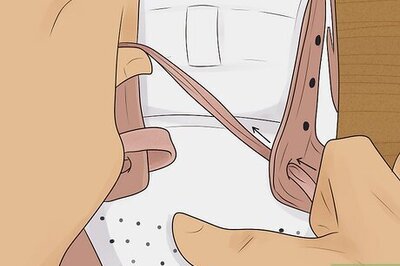
views

Before you get turkeys, ask yourself if turkeys are right for you. If you don't really like them, it is best off not to get turkeys because you will be less apt to care for them, and if you don't care for them, what's their use? Be sure your town doesn't have anything against keeping turkeys. Do your research and you'll avoid some unexpected and rather unwanted surprises. Consider your neighbors, too. Although turkeys tend to not be as smelly as chickens and toms don't make nearly as much noise as roosters, you may have some picky neighbors and either tell you to get rid of them, or worse, report you to the neighborhood staff. Think about any financial trouble you may be having. Don't get turkeys if it will do damage to your budget, for both you and your potential turkeys. Coops, food, water, space, feeders, waterers, incubators- what's next? All together, these can cost hundreds or even thousands of dollars that you might not have.

Buy a tom and a hen. If you are going to pick them out as chicks (Turkey babies are called 'poults') to raise and subsequently breed, be sure they are correctly sexed. Sexing is commonly incorrectly done in small birds, due to their small nature. Larger birds are recommended for food purposes, but recently hatched ones are recommended for show and friendship purposes because you can bond with smaller birds easier.

Feed and water your birds every day and check frequently to be sure both containers are full. Resist your instinctive urge to water young turkeys that are not drinking water with a syringe for safety purposes (see warnings). Young turkeys need to be checked on 6 times a day at a minimum, so do not keep them if you cannot check on them this frequently. Older birds only need to be checked on about 1 or 2 times a day, for they tend to forage for insects, weeds, worms, and other tidbits they find in the yard throughout the day. However, like chicks, older birds may occasionally do naughty things like poop in their food and water, so be sure to clean out this stinky water as soon as possible!

Let mature birds run around outside together. Free range is recommended, however be sure that they are safe from most predators. If you must keep them confined, be sure they have at least 10 square feet for living area per bird for best results.

Leave your hens alone when they are laying. Right now, she needs some peace and quiet. She will not want to get up and get food and water, so be sure to leave some "easy access" water food and water nearby. She will eventually get up to get food and water.See warnings for details.




















Comments
0 comment